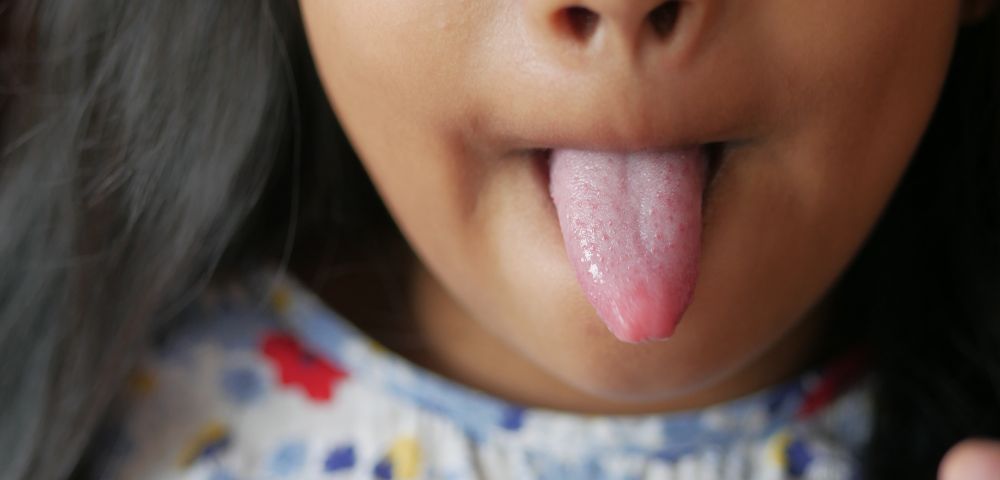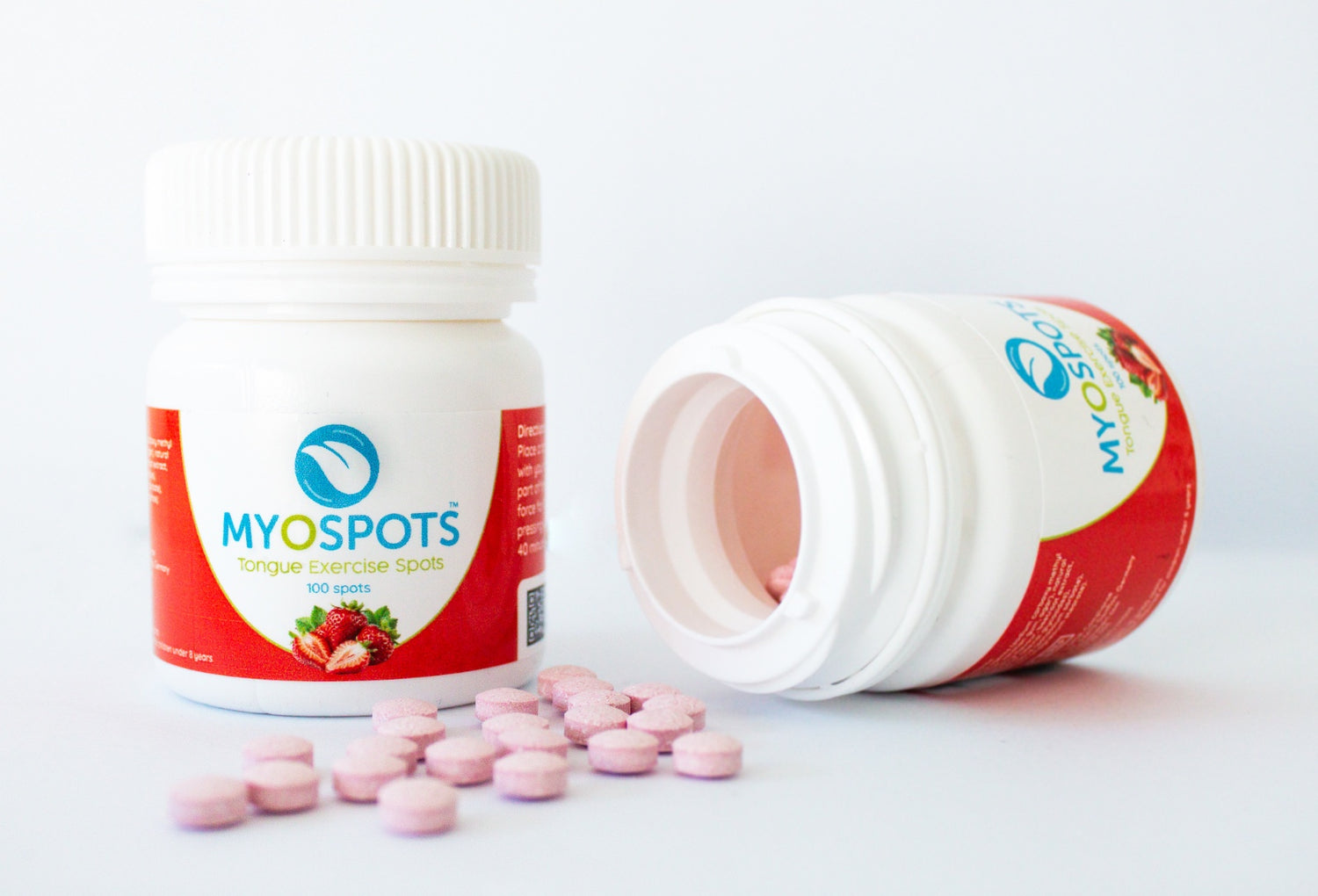Breathing provides us with the oxygen we need to survive. It’s one of the most important things we do, yet for many of us, the act of breathing largely goes unnoticed.
If you pay attention to your breathing for a moment, chances are, it’s your nose doing the heavy lifting. In general, breathing through your nose is healthier than breathing through your mouth. That’s because nose breathing is more natural and helps your body to best use the air you take in.
On the other hand, breathing through your mouth is acceptable during illness or exercise, however, it's not ideal for everyday activities and may contribute to some health risks.
Unfortunately, for 30-50% of adults, mouth breathing is a common occurrence.
Myospots, provide a practical solution to mouth breathing. Designed to assist with tongue retraining exercises, which are part of myofunctional therapy, Myospots aim to help you strengthen your tongue muscles and improve your tongue's posture, tackling the habit of mouth breathing and contributing to the improvement of your overall health.
Here we discuss mouth breathing vs nose breathing, and how you can use Myospots to help.
Is mouth breathing bad?
If you think back to the last time you had a nasty cold. Remember how the nasal congestion forced you to breathe through your mouth? Did you find it turned everyday activities into a challenge, affecting your sleep, draining your energy, and making basic tasks seem harder? That's because, when it comes to breathing, your nose is superior to your mouth.
Your nose is designed for breathing and smelling, while your mouth has a different set of responsibilities – eating, drinking, and talking. Mouth breathing is appropriate when you can’t get enough oxygen through your nose.
If you’re experiencing a cold, allergies or nasal congestion which is making nose breathing difficult, then mouth breathing may become necessary. Also, during exercise, you might mouth breathe to get oxygen to your muscles more quickly. However, breathing through your mouth all the time can lead to problems.
So why is mouth breathing bad? There are several mouth-breathing effects on your overall health and well-being. Breathing through your mouth dries your gums and the tissues inside of your mouth which can change your mouth’s natural bacteria, contributing to bad breath, gum disease and tooth decay.
Mouth breathing may also increase your risk of throat and ear infections. Furthermore, if you habitually breathe through your mouth rather than your nose you may be more likely to experience sleep disorders like sleep apnoea.
Children who mouth breathe are more likely to have dental problems like malocclusion (teeth not aligned properly) and changes to their facial shape. Also, in children, the sleep disorders often associated with mouth breathing may be linked to learning difficulties and behavioural problems.
There are many advantages to nose breathing.
- Filtration- when you breathe through your nose the tiny hairs in your nasal passages help to filter the air, reducing the risk of dust, allergens, pollution, and other particles finding their way into your lungs.
- Humidification and temperature regulation- you have bony structures in your nose called nasal turbinates. They humidify, as well as regulate the temperature of the air you breathe.
- Nitric oxide- your nose releases nitric oxide (NO) during nasal breathing which helps to widen your blood vessels to improve the circulation of air in your body.
How to stop mouth breathing
If you find yourself habitually breathing through your mouth, working to address this habit is important for your overall health and well-being. Your first step should be a visit to your doctor.
Chronic breathing issues require a proper diagnosis and personalised advice, ensuring that the root cause of your mouth breathing is identified and addressed.
[shortcode id="66a83d9d5abc5f7acf2ae8e9" name="Myospots In Blueberry Flavour" layout="Single Product"]
Identifying the cause is crucial, as mouth breathing could be a symptom of an underlying condition or obstruction. If an obstruction, such as enlarged tonsils or adenoids, a deviated septum, nasal polyps, or enlarged turbinates, is hindering the airflow through your nose, medical treatment to clear the obstruction is needed. Your body resorts to mouth breathing to get the oxygen it needs, which is why addressing the obstruction is fundamental to breaking the habit.
For those whose mouth breathing is more of a habitual nature, a conscious effort to shift to nasal breathing is required. This is where Myospots may help.
How Myospots help break your mouth breathing habit
To understand how Myospots help we need to discuss your tongue posture.
The correct resting position for your tongue is on the roof of your mouth. There it blocks your oral airways, making it impossible to breathe through your mouth and encouraging the healthier habit of nasal breathing. However, for many who habitually breathe through their mouth, their tongue will rest low in their mouth, allowing for their lips to open and for air to flow through the oral airway.
One way to address mouth breathing is to undertake oral exercises that re-train your tongue to sit in the correct position within your mouth, creating a nasal breathing habit that lasts while both awake and asleep.
Myospots can help you to easily perform these tongue retraining exercises. Myospots are small, flavoured pads that adhere to the roof of your mouth. They dissolve after 50 minutes and aim to encourage your tongue to rest in the correct position.
Learn more about how they work here. Get started now and buy your first Myospots order here.
*All information is general in nature and is not intended to be a substitute for professional medical advice. Your healthcare provider can consult with you to confirm if this advice is right for you.
References:
Allen, R. (2015). The Health Benefits of Nose Breathing. Nursing in General Practice. pages 40-42. http://hdl.handle.net/10147/559021 Sleep Health Foundation. (2023). ADHD and Sleep in Children. www.sleephealthfoundation.org.au/sleep-topics/adhd-and-sleep-in-children




